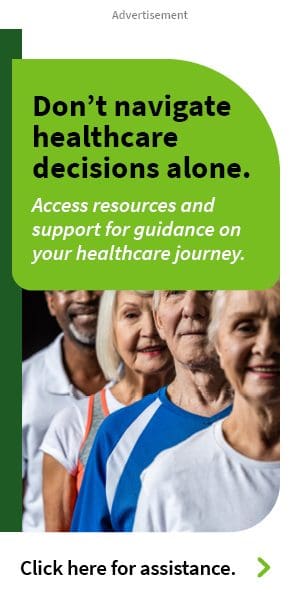Key Takeaways:
- By 2030, all Medicare beneficiaries will likely be enrolled in a care coordination program as part of a larger effort to improve patient outcomes and healthcare efficiency.
- Care coordination programs will reduce gaps in care, ensure smoother transitions between providers, and improve patient satisfaction across the healthcare continuum.
Medicare’s Plan for 2030: Why Every Beneficiary Will Be in a Care Coordination Program
Medicare is at a critical turning point. By 2030, the government plans to implement significant changes to ensure that every beneficiary is enrolled in a care coordination program. This initiative is driven by the rising costs of healthcare, the aging population, and the need for a more integrated, patient-centered approach to care. As healthcare systems evolve, care coordination is seen as a critical mechanism for streamlining services, improving patient outcomes, and ultimately lowering costs. This article delves into the reasons behind this transformative push and what it means for Medicare beneficiaries.
The Aging Population and Rising Healthcare Costs
The United States is facing an unprecedented demographic shift. By 2030, more than 80 million Americans will be aged 65 or older, many of whom will rely on Medicare for their healthcare needs. This surge in the aging population presents significant challenges for the healthcare system, as older adults are more likely to suffer from multiple chronic conditions that require ongoing and coordinated care.
Healthcare costs are also rising at an unsustainable rate. As of 2024, Medicare expenditures are expected to grow by more than 7% annually, placing increasing pressure on the system to find ways to deliver care more efficiently. Care coordination programs are a direct response to these challenges. They aim to reduce redundancies in care, prevent hospital readmissions, and ensure that patients receive timely and appropriate care at every stage of their healthcare journey.
What is Care Coordination?
Care coordination refers to the deliberate organization of patient care activities to facilitate the appropriate delivery of healthcare services. It involves a team-based approach where various healthcare providers—primary care physicians, specialists, nurses, and other health professionals—work together to meet the patient’s needs. The goal is to avoid fragmentation of care, where patients may receive disjointed or overlapping services from multiple providers without clear communication.
For Medicare beneficiaries, care coordination typically includes managing transitions between different healthcare settings, such as hospitals, rehabilitation centers, and home care. It also involves ensuring that patients adhere to treatment plans, attend follow-up appointments, and have access to necessary support services, such as medication management or physical therapy.
Why Care Coordination is Crucial for Medicare Beneficiaries
Many Medicare beneficiaries suffer from chronic conditions such as diabetes, heart disease, and arthritis, which require ongoing management. The traditional fee-for-service model of care, which incentivizes volume over quality, often fails to address the complex needs of these patients. Without coordination, patients may experience gaps in care, leading to avoidable hospitalizations, emergency room visits, and poor health outcomes.
Care coordination programs, in contrast, emphasize the seamless transition between healthcare providers and services. This not only helps in managing chronic diseases more effectively but also improves patient satisfaction by reducing confusion and stress. For example, a patient recovering from surgery might benefit from coordinated care that includes follow-up visits, home healthcare services, and physical therapy—all arranged by a care team working together rather than in isolation.
The Role of Technology in Care Coordination
Technology plays a pivotal role in making care coordination possible on such a large scale. Electronic Health Records (EHRs) have become essential tools in facilitating communication between healthcare providers, allowing them to access and share patient information quickly and efficiently. By 2030, advancements in telehealth and remote patient monitoring are expected to further enhance the ability to coordinate care.
Telehealth, in particular, has grown rapidly since the COVID-19 pandemic and is now seen as a critical component of future care models. It allows providers to conduct virtual consultations, monitor patients remotely, and ensure continuity of care without the need for in-person visits. For Medicare beneficiaries, especially those with mobility issues or those living in rural areas, telehealth offers a convenient and accessible way to stay connected with their care teams.
Additionally, artificial intelligence (AI) and machine learning algorithms are increasingly being used to predict patient outcomes and identify those at risk of hospital readmissions or other complications. These technologies can flag potential issues early on, allowing care teams to intervene before a condition worsens.
Medicare Advantage and Care Coordination
While traditional Medicare has lagged behind in implementing comprehensive care coordination models, Medicare Advantage plans have been quicker to adopt these programs. Medicare Advantage, a type of private insurance that provides Medicare benefits, often includes built-in care coordination services as part of its offerings. These plans are incentivized to manage patient care more effectively because they receive a fixed payment for each enrollee, regardless of the amount of care provided. As such, they have a financial stake in keeping patients healthy and out of the hospital.
By 2030, however, it is anticipated that traditional Medicare will fully embrace care coordination as a fundamental aspect of its coverage. This shift will likely be driven by ongoing changes in reimbursement models, such as the adoption of value-based care, which rewards providers for improving patient outcomes rather than simply delivering services.
The Impact on Patients: What to Expect
For Medicare beneficiaries, the transition to universal care coordination by 2030 promises several key benefits:
-
Improved Quality of Care: Care coordination ensures that all aspects of a patient’s health are considered, from physical health to mental and social well-being. This holistic approach leads to better health outcomes and a higher quality of life for patients.
-
Reduced Hospital Readmissions: One of the main goals of care coordination is to prevent unnecessary hospitalizations. By ensuring that patients receive appropriate follow-up care, adhere to medications, and manage chronic conditions effectively, care coordination programs can significantly reduce the risk of readmissions.
-
Greater Patient Satisfaction: Patients often report feeling lost or overwhelmed when managing their healthcare, especially when dealing with multiple providers. Care coordination helps to alleviate this burden by providing a single point of contact for all care-related issues, making the process more streamlined and less stressful.
-
Cost Savings: While the primary focus of care coordination is on improving health outcomes, it also has the potential to lower healthcare costs. By avoiding redundant tests, preventing complications, and reducing hospital stays, care coordination can help control Medicare’s rising expenditures.
Challenges Ahead
While the benefits of care coordination are clear, there are also significant challenges to be addressed as Medicare moves toward universal implementation by 2030. One of the primary obstacles is the fragmented nature of the U.S. healthcare system, which often operates in silos. Integrating various providers, hospitals, and healthcare settings into a cohesive care coordination framework will require substantial investment in infrastructure, technology, and training.
Moreover, the success of care coordination depends heavily on patient engagement. Patients must be active participants in their care, which includes attending appointments, following treatment plans, and communicating effectively with their care teams. Educating Medicare beneficiaries about the importance of care coordination and how to navigate the system will be crucial in ensuring its success.
Medicare’s Roadmap to 2030: A Coordinated Future
As Medicare approaches 2030, care coordination will be at the forefront of its strategy to provide high-quality, efficient healthcare for millions of beneficiaries. With the aging population and increasing burden of chronic disease, the need for coordinated care has never been more urgent. Technology, value-based care models, and patient-centered approaches will all play key roles in transforming Medicare into a system that prioritizes coordination over fragmentation.
Beneficiaries can look forward to a future where they receive more personalized, seamless care that addresses all aspects of their health. While challenges remain, the move toward universal care coordination represents a significant step forward in improving the quality of life for Medicare beneficiaries and ensuring the sustainability of the program for future generations.
Planning for Better Care by 2030
Medicare’s transition to universal care coordination by 2030 marks a major shift in how healthcare will be delivered to older adults. The focus on integrated, patient-centered care is poised to enhance health outcomes, reduce costs, and improve the overall experience for beneficiaries. As these changes unfold, it will be important for patients and providers alike to embrace the benefits of coordinated care and work together toward a healthier future.










